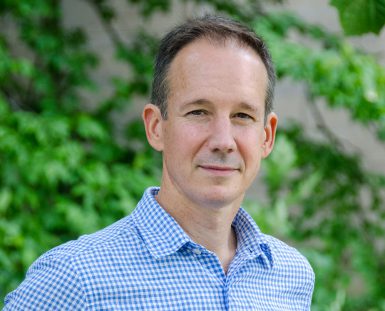Coleman talks on aging workforce at Themester event

Professor of practice Joe Coleman discussed workforce and retirement issues around the world Oct. 29 as part of the College of Arts and Sciences’ Themester program. The theme this year is @Work: The Nature of Labor on a Changing Planet.
Coleman drew on his book published earlier this year, Unfinished Work: The Struggle to Build and Aging American Workforce, and shared examples of the aging workforce in Japan, Sweden and the United States.
“The question I pose in this book is, ‘how can we make sure that people can re-build their lives so they can retire in a comfortable way?” Coleman said.
He explained that the problem is the result of raising the retirement age but not offering any jobs. Companies do not want to hire older individuals because of the stereotype that they would need more training than others and that they will probably retire soon.
Coleman pointed out some ways that governments are responding to this dilemma. Some, such as the U.S. and Sweden, offer government-run training programs for the older people.
Japan, on the other hand, is much more committed to developing solutions.
“The difference I found is that the [Japanese] government is much more involved in trying to manipulate the labor market so older people can work,” said Coleman, former Associated Press bureau chief in Tokyo.
The Japanese government formed “silver” human resource centers, which create part-time and temporary jobs for retirees.
“They’re social clubs with work at its center,” Coleman said.
He said Japan is the most rapidly aging country in the world; 26 percent of the population is 95 or older, compared to the U.S.’s 13 percent. When he decided to write a book, Coleman said it was clear to him that the retirement system would be his focus.
During his research, Coleman visited Kamikatsu, a small town in Japan where the elders were taking on the challenge of employing themselves. A group of nine women formed a cooperative to pick leaves off of trees to sell as garnishes to upscale Japanese restaurants. These garnishes are a crucial component of meals in Japan. One 90 year-old woman, Hariki-San, was able to give her two grandsons $100,000 each from her earnings.
Coleman travelled to many parts of the U.S, Japan, and Europe to learn about how different countries deal with the retirement issue.
“It was really interesting to hear about it from someone who researched it,” junior Tasha Baker said. “He felt personal to the people he interviewed.”
Throughout his research and writing the book, Coleman said he learned three things that could help to solve this issue of employment of older people. The first is that the Great Recession in the U.S. has confronted the issue of the older workforce. Second, he believes that training and career services for elders should be higher up on the government’s list. Last, he said people can spread awareness so that corporations can view older populations as having more to contribute.

